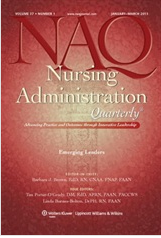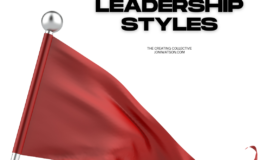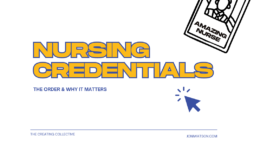 The Article: Johnson, J.E., Mastro, K.A., & Smith, A.L. (2012). From Toyota to the bedside: Nurses can lead the lean way in health care reform. Nursing Administration Quarterly, 36(3), 234-42.
The Article: Johnson, J.E., Mastro, K.A., & Smith, A.L. (2012). From Toyota to the bedside: Nurses can lead the lean way in health care reform. Nursing Administration Quarterly, 36(3), 234-42.
Big Idea: The Toyota Production System of the 1960’s produced a new quality and efficiency method called Lean, which focuses on standardization and reducing waste. With healthcare systems required to “do more with less,” Lean initiatives are appropriate options. Nurses can help lead the way with Lean ideas and programs. The authors discuss the overall concept of Lean, how it can impact health care, two case studies of how nurse-led Lean initiatives are changing care within the operating room and the emergency department, and lessons learned from the Lean change processes.
Survey Says!: The two nurse-led initiatives streamlined supply/inventory processes, improved OR turnaround time, reduced overtime, aligned staffing with demand, and reduced ED length-of-stay by 47 minutes. All of these efforts led to increased revenue.
Quotable: “Since 2005, Lean has been used tactically for discrete, departmental problems in hospitals [ref]. Lean techniques have been used to increase the performance of hospital administration, specialty clinics in dermatology and gastroenterology, health plans and medical practices [ref]; heart and vascular centers [ref]; oncology clinics [ref]; radiology [ref]; emergency departments [refs]; and entire hospital systems [ref]. Increasingly, Lean has been used as a system-wide operating framework within health care systems that have emerged as early adopters of Lean as a major innovation in health care” (p. 235).
“As Senge [ref] suggested more than 20 years ago, the systems perspective is badly needed in a world overwhelmed by rapid technologic change, changing demographics, shifting borders, and increasing complexity” (p. 238).
“Leading a complex Lean transformation of a large hospital department is a natural role for nurses, who have experience leading multi-disciplinary teams, are trained in assessment, and are system thinkers. Nurses also bring added advantages to the role of Lean leader – an uncompromising commitment to patient care and the natural ability to view hospital systems through the lens of the patient” (p. 238).
So What?: With the Affordable Care Act fully implemented in 2019, it is essential for hospitals to work at maximum efficiency. Lean initiatives can help streamline care and processes, and nurses are ideal Lean leaders. If you are interested in systems, processes, quality improvement, or improving your healthcare organization’s bottom line, you should definitely read this article and engage your nurses and other healthcare leadership.





